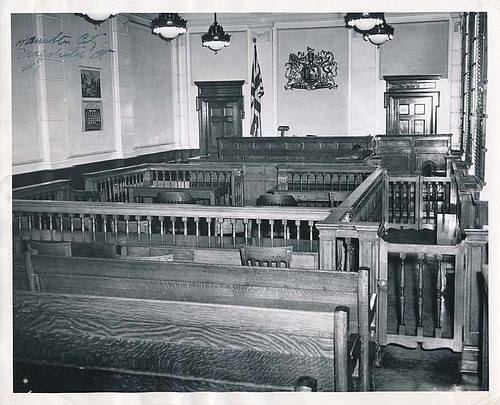The can and can’t of criminal trials
 Criminal trials obviously involve two adversarial parties, the prosecution (the Commonwealth in Pennsylvania, the State in New Jersey and the People in New York) and the defense. While the burden of proof is always on the prosecution, that burden is often blurred during the proceedings as the prosecution makes an argument as to why a person is guilty. In a criminal case, especially those involving guns, firearms, or illegal drugs or controlled substances, assistant district attorney’s will often argue that the person is guilty of more than just a felony or misdemeanor offenses charged in the case.
Criminal trials obviously involve two adversarial parties, the prosecution (the Commonwealth in Pennsylvania, the State in New Jersey and the People in New York) and the defense. While the burden of proof is always on the prosecution, that burden is often blurred during the proceedings as the prosecution makes an argument as to why a person is guilty. In a criminal case, especially those involving guns, firearms, or illegal drugs or controlled substances, assistant district attorney’s will often argue that the person is guilty of more than just a felony or misdemeanor offenses charged in the case.
This is especially true in jury trials where the prosecution is attempting to convince twelve jurors of a person’s guilt as opposed to one judge. It’s important to understand that at a jury trial the District Attorney gets the last word and they often use it to their advantage especially in cases where the person is charged with possession with the intent to deliver illegal drugs or the possession of a firearm (VUFA).
There are limits, however, in what a District Attorney can argue and those arguments must be based on the facts listed from the testimony during the course of a trial and the elements of the offenses charged which the judge will also discuss in his or her final jury instructions to those twelve people who will ultimately decide a person’s fate.
Closing arguments that aren’t based on facts or reasonable inferences from those facts are inappropriate and could ultimately lead to a mistrial or at the very least curative jury instructions. Demands for a mistrial or curative jury instructions, however, are almost in all cases made by the criminal defense lawyer and not the court alone.
It is for instance improper for the prosecuting lawyer to make references to issues or matters which were never part of the evidence presented during the course of the trial. The District Attorney, however, is permitted to respond to arguments that the defense attorney raises during his argument and so it is important that your criminal defense lawyer not make arguments that are going to alternately lead to arguments to which he can’t respond. Remember that the DA gets the final word in your criminal case and your defense lawyer doesn’t get an opportunity to get back in front of the jury one last time.
In the case of drugs, for instance, the DA can’t argue that the allegations of drug dealing created a dangerous situation in the community if there is no evidence of it. Obviously the DA can’t speak about improper character evidence but there are situations where character evidence is properly admitted during the course of a trial and I encourage you to read my article on character evidence for more information on this topic.
Again, the DA’s only permitted to argue facts from the case or elements of a crime. Every criminal offense contains elements which the prosecution must prove beyond a reasonable doubt. For more information on elements of VUFA (gun or firearm) offenses and drug offenses I encourage you to read my articles on these topics. Finally, the DA may argue some type of witness intimidation but again if it is not a part of the criminal case and there is no evidence of it then it’s improper and not appropriate for them to argue it. While arguments are a part of criminal trials there are limits to those arguments. Your criminal defense lawyer needs to understand these limits in order to effectively defend your interests. There are obviously going to be cases where the DA can argue aggravating circumstances which aren’t necessarily a part of the elements of the offense (DUI dangerous to the public). Your criminal defense lawyer needs to be ready for these arguments. For more information on criminal defense strategies I encourage you to subscribe to my monthly newsletter, watch my videos, and download a free copy of one of my books.
Contact Our Criminal Defense Lawyers in PA & NJ
Please click here to contact our Philadelphia criminal defense lawyers. We offer free case reviews and serve the following areas in Pennsylvania and New Jersey, Atlantic City, Camden, Cherry Hill, Chester, Conshohocken, Doylestown, Media, Norristown, Philadelphi


